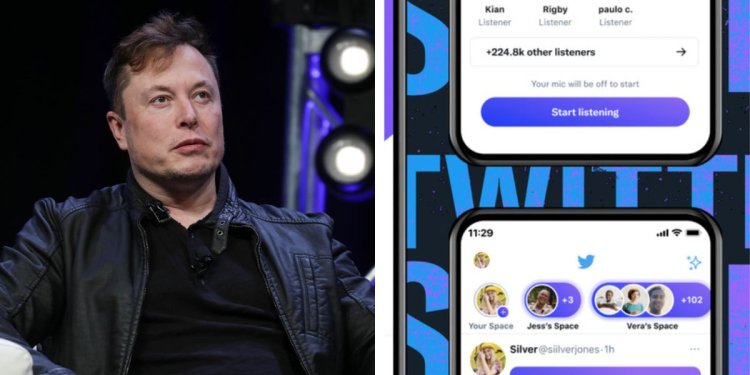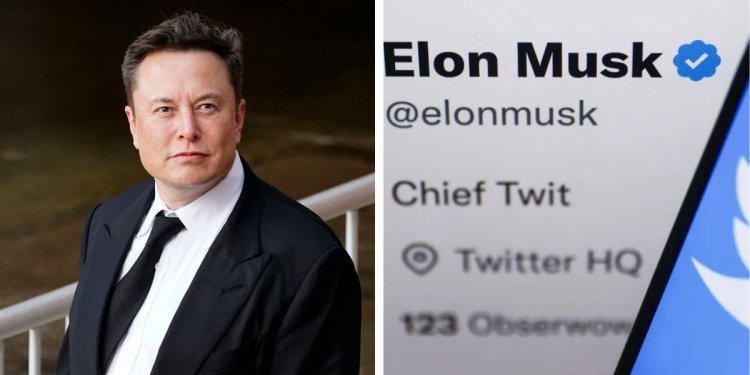Elon Musk Pulls Down Twitter Spaces After Journalists Corner Him
Musk was responding to a user who expressed that he was experiencing glitches that were...

Elon Musk, the world's second richest person and Chief Twit, left billions of Twitter users globally in the cold after he disabled the popular Spaces audio feature on Friday, December 16.
Viral Tea discovered, following spot checks, that the option of joining or creating a Twitter Spaces public forum disappeared.
Musk was responding to a user who expressed that he was experiencing glitches that were blocking users across the world from joining the forums, which were introduced in December 2020 in an attempt to overtake social media platforms like Clubhouse which possessed the same features.
"We’re fixing a Legacy bug. Should be working tomorrow (Saturday, December 17)," Musk wrote.
Holy Shit. Elon Musk just popped into a Twitter Spaces chat with a bunch of journalists. He was called out by journalist Drew Harrell, who he banned, for lying about posting links to his private information, then leaves almost immediately after being pressed. Here is the exchange pic.twitter.com/wVA9Gb5MVJ — Bradley Eversley (@ForeverEversley) December 16, 2022
Musk had previously suspended several prominent journalists from the microblogging platform after they covered a previous story about the Elon Jet Twitter account that was banned for using publicly-available data to track his private jet.
Twitter however had a hidden means for banned accounts to access Spaces conversations and interact with other attendees, meaning some journalists who had been banned managed to find their way into a space started by BuzzFeed News reporter Katie Notopoulos.
She was discussing the abrupt spate of bans, which came without communication to either the journalists or their publications and was joined by Drew Harwell of the Washington Post and Matt Binder of Mashable, two of the suspended reporters.
Their tweets were no longer visible and they could not post new ones, however, they were still allowed to speak on the Spaces service.
Musk dropped in on the session as well, after it accumulated thousands of listeners, to say tersely that anyone who doxxes, that is gives personal location information about another person, will be suspended.
“Showing real-time information about someone’s location is inappropriate. You dox, you get suspended, end of story," Musk said in the conversation captured in a video that went viral on social media.
He added: "Criticizing me all day long is totally fine, but doxxing my real-time location and endangering my family is not."
The journalists however backed him to a tight spot by arguing that they had not posted any real-time flight data, as he alleged, but by then the billionaire had quit the call. The dialogue drew more than 40,000 listeners at its peak.
Twitter Spaces then went down while Notopoulos’ session was still ongoing, disconnecting everyone, she said in a later tweet.
On Wednesday, December 14, the Twitter account that tracked flights of Musk's private jet was shut down despite the billionaire's statement that he is a free speech absolutist. He had threatened legal action against the account's operator, saying his son had been mistakenly followed by a "crazy stalker".
Twitter later sent out word that it updated its policy to prohibit tweets, in most cases, from giving away someone's location in real-time.
Since the billionaire took over, Twitter has been jumping from one controversy to the next. On Tuesday, November 1, he revealed that he would start charging monthly fees to users verified on Twitter, threatening to take away their blue checkmarks if they did not comply with the new rules.
The launch of Twitter Verified was paused multiple times to address certain issues but by the time of publishing, he had started rolling out a new strategy that will see the implementation of different colour checkmarks to separate individual Twitter accounts and organizations.

"Gold check for companies, grey check for government, blue for individuals (celebrity or not) and all verified accounts will be manually authenticated before check activates. Painful, but necessary," he stated.
In terms of staff working at the platform, Musk introduced drastic measures that included the laying off of more than half of Twitter's workforce and forcing other employees to commit to "extremely hardcore" work or be fired.

 admin
admin 




